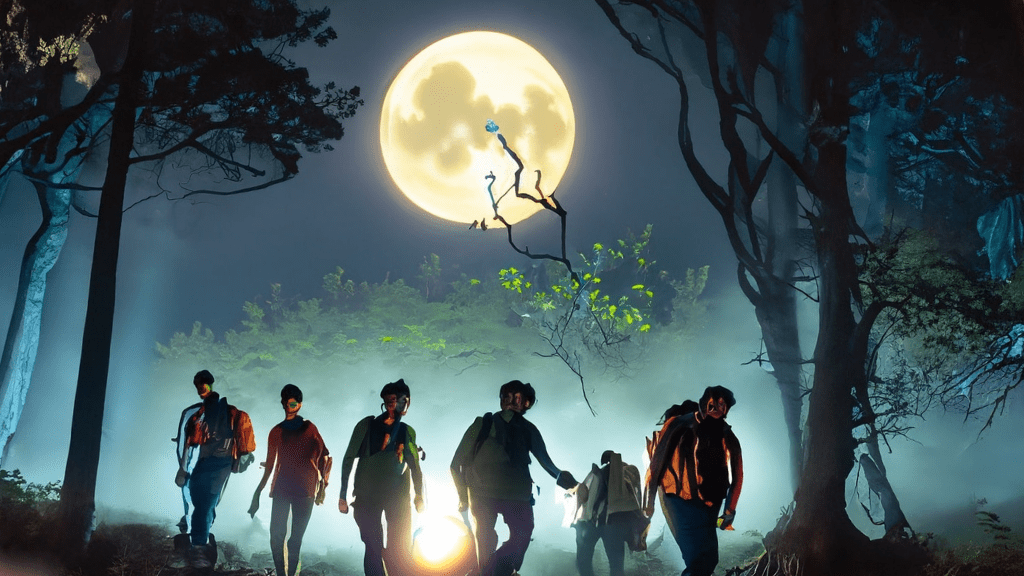
Introduction
trails carolina horror stories, In recent years, the internet has been abuzz with sensationalized stories and accounts about wilderness therapy programs, with one name gaining particular notoriety – “Trails Carolina.” Touted as “Trails Carolina Horror Stories,” these anecdotes often depict an unsettling picture of the program. However, it is essential to approach these stories with a discerning eye, recognizing that not all that glitters are gold. In this article, we delve into the truths behind “Trails Carolina Horror Stories” to better understand the reality of wilderness therapy.

The Phenomenon of Trails Carolina Horror Stories
Wilderness therapy programs have been around for decades, offering a unique approach to help troubled teens and young adults facing emotional and behavioral challenges. Among these programs, Trails Carolina stands as a prominent institution, garnering both praise and criticism.
trails carolina horror stories, The term “Trails Carolina Horror Stories” emerged from online forums and social media, where individuals shared alleged negative experiences during their time at the program. These stories often include accounts of tough physical conditions, emotional distress, and claims of mistreatment by staff. As with any widely discussed topic on the internet, the veracity of these stories can vary significantly.
Understanding Wilderness Therapy
Wilderness therapy programs like Trails Carolina are designed to provide participants with an immersive and therapeutic experience in a natural outdoor setting. The goal is to offer an alternative to traditional therapeutic settings and to help individuals build resilience, develop life skills, and gain insight into their emotions and behaviors.
Participants in these programs engage in activities such as hiking, camping, group therapy sessions, and daily routines that emphasize responsibility and self-reliance. The wilderness environment serves as a catalyst for self-discovery and personal growth, encouraging participants to confront their challenges and learn coping strategies.
Regulation and Accreditation
Critics of wilderness therapy programs often raise concerns about the lack of industry-wide regulation and oversight. While this is a valid point, it’s important to note that reputable wilderness therapy programs, including Trails Carolina, typically adhere to specific guidelines and ethical standards.

trails carolina horror stories, Reputable programs are often accredited by recognized bodies like the Outdoor Behavioral Healthcare Council (OBH), which sets industry standards for safety, treatment, and staff qualifications. These accreditations ensure that programs meet minimum safety requirements and maintain ethical practices.
Individual Experiences and Program Efficacy
It is essential to acknowledge that individual experiences within wilderness therapy programs can vary significantly. While some participants may have positive, transformative experiences that lead to long-lasting benefits, others may struggle with the challenges presented in the program.
Critics argue that the rigid structure and physical demands of such programs may not be suitable for everyone, and there have been instances of isolated incidents that sparked the “Trails Carolina Horror Stories” narratives. However, it’s important to differentiate between individual experiences and the efficacy of the program as a whole.

Ensuring Safety and Ethical Practices
The responsibility lies not only with the wilderness therapy programs but also with parents or guardians seeking help for their struggling teens. When considering a program like Trails Carolina, thorough research is vital. Parents should:
- Verify the program’s accreditation and compliance with industry standards.
- Speak directly with program representatives and ask specific questions about safety measures, staff qualifications, and therapeutic approaches.
- Request references from former participants and their families to gain insights into their experiences.
FAQs
What is wilderness therapy?
Wilderness therapy is a therapeutic intervention that takes place in a natural outdoor setting, such as forests or wilderness areas. It aims to help individuals facing emotional and behavioral challenges through outdoor activities, group therapy, and self-reflection.
What is “Trails Carolina”?
“Trails Carolina” is a prominent wilderness therapy program that offers therapeutic intervention for troubled teens and young adults. It provides a structured environment in a wilderness setting to promote personal growth and self-discovery.
What are “Trails Carolina Horror Stories”?
“Trails Carolina Horror Stories” refers to negative accounts or anecdotes shared by individuals who claim to have had unfavorable experiences during their time in the Trails Carolina program. These stories often raise concerns about safety, mistreatment, or the efficacy of the program.
Are wilderness therapy programs like Trails Carolina regulated?
While the wilderness therapy industry lacks comprehensive federal regulations, reputable programs often seek accreditation from organizations like the Outdoor Behavioral Healthcare Council (OBH). Accreditation ensures adherence to safety standards and ethical practices.
Do all participants in wilderness therapy programs have positive experiences?
No, individual experiences in wilderness therapy programs can vary significantly. Some participants may find the experience transformative and beneficial, while others may struggle with the challenges presented in the program.
Conclusion:
trails carolina horror stories, The world of wilderness therapy is complex, with both success stories and cautionary tales. As with any treatment approach, it is crucial to approach “Trails Carolina Horror Stories” with a balanced perspective, recognizing that individual experiences can differ widely. Engaging in thorough research and seeking out reputable programs that prioritize safety and ethical practices is essential for families seeking help for their troubled teens. Only then can we better understand the true impact of wilderness therapy and its potential to foster positive change in the lives of those who need it most.
Must Read=snoop on a stoop



